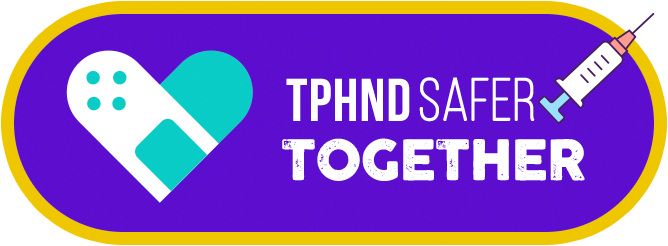
Overview
As we continue to navigate the uncertainty of the COVID-19 pandemic, there’s a lot of and debate around whether or not to take the vaccine. Truthfully, many of us hadn’t even heard of a coronavirus before 2020. The steps to resolving the outbreak of this virus haven’t been clear or easy to navigate. We’ve worn masks, quarantined, washed our hands, and distanced ourselves from each other, but it doesn’t seem like anything ever put a dent in the constantly increasing numbers of COVID-19 cases.
We believe that one of the best chances we have as a community (and you have as individual) in combatting COVID-19 is to become fully vaccinated. While the vaccine doesn’t eliminate your risk of contracting COVID-19, it does significantly lower the risk of severe diseases or death due to COVID-19. As a faith community, we are certainly praying that God will intervene and end this pandemic. We have also put together facts and some of our personal experiences, not to inform you of what to do, but perhaps lower any apprehension, suspicion or fear you may have about becoming vaccinated.
We want to be clear. Your health matters are a personal choice. We are not trying to force you to do anything. We are not medical professionals, but we have sought the counsel of healthcare providers within our congregation and the community in forming our opinion. Before making any medical decisions, please consult with your healthcare provider, especially regarding this vaccine, if you have had severe allergic reaction to vaccines in the past.
Frequently Asked Questions
Why should I get vaccinated?
Protecting yourself also protects the people around you, like those at increased risk of severe illness from COVID-19 or those who can’t get vaccinated — like infants, or people with weakened immune systems from things like chemotherapy for cancer.
We are still learning how the vaccine affects whether people can still transmit COVID-19 to others. It may be possible that a vaccinated person can still carry the virus and infect others, even if that person does not appear to be sick.
Are vaccines safe to take?
Every vaccine must go through rigorous testing and inspection to ensure it is safe.
Vaccines for COVID-19 followed a 3-phase process where there are several stages before FDA authorization:
Phase 1: The vaccine is tested in a small number of generally healthy adults, usually between 20 and 80 people. It’s evaluated for safety, dosage, and any side effects. Experts also look at what type of immune response is created.
Phase 2: If there are no safety concerns from Phase I studies, the vaccine is given in various dosages to hundreds of adults who may have a variety of health issues and come from different backgrounds to make sure it is safe. These studies provide additional safety information on common short-term side effects and risks, examine the relationship between the dose given and the immune response, and may provide additional safety information on common short-term side effects and risk, examine the relationship between dose given and the immune response, and may provide initial information regarding the effectiveness of the vaccine.
Phase 3: Experts broaden the study to include thousands of adults, from a variety of ages and backgrounds. They see how many people who got the vaccine were protected from the disease, compared to those who received a placebo.
Do the vaccines use MRNA and what really is it?
mRNA is not able to alter our genetic makeup (DNA).
The mRNA from a COVID-19 vaccine does not affect or interact with our DNA in any way. Instead,
COVID-19 vaccines that use mRNA work with the body’s natural defenses to safely develop immunity to disease.
How do vaccines really work?
Some COVID-19 vaccines use messenger RNA, or mRNA. mRNA vaccines do not contain a live virus
— they give our bodies “instructions” for how to make and fight the harmless spike-shaped proteins that will protect against a COVID-19 infection. While these vaccines use new technology, researchers have been studying them for decades.
Does the vaccine protect against new variants?
New variants of the virus that causes COVID-19 illness have emerged. Current data suggest that COVID-19 vaccines used in the United States should work against these variants. For this reason, COVID-19 vaccines are an essential tool to protect people against COVID-19, including against new variants. CDC recommends getting vaccinated as soon as a vaccine is available to you.
This is an evolving landscape.
Additional Resources
We strongly encourage you to become informed about your vaccination decision.
